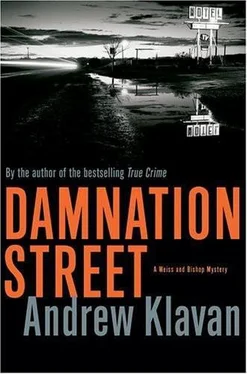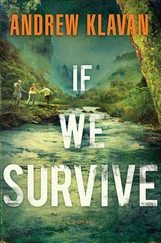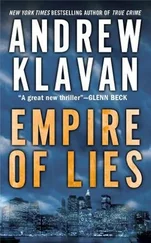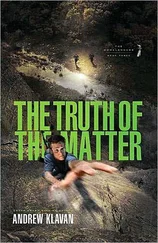Andrew Klavan - Damnation Street
Здесь есть возможность читать онлайн «Andrew Klavan - Damnation Street» весь текст электронной книги совершенно бесплатно (целиком полную версию без сокращений). В некоторых случаях можно слушать аудио, скачать через торрент в формате fb2 и присутствует краткое содержание. Жанр: Триллер, на английском языке. Описание произведения, (предисловие) а так же отзывы посетителей доступны на портале библиотеки ЛибКат.
- Название:Damnation Street
- Автор:
- Жанр:
- Год:неизвестен
- ISBN:нет данных
- Рейтинг книги:5 / 5. Голосов: 1
-
Избранное:Добавить в избранное
- Отзывы:
-
Ваша оценка:
- 100
- 1
- 2
- 3
- 4
- 5
Damnation Street: краткое содержание, описание и аннотация
Предлагаем к чтению аннотацию, описание, краткое содержание или предисловие (зависит от того, что написал сам автор книги «Damnation Street»). Если вы не нашли необходимую информацию о книге — напишите в комментариях, мы постараемся отыскать её.
Damnation Street — читать онлайн бесплатно полную книгу (весь текст) целиком
Ниже представлен текст книги, разбитый по страницам. Система сохранения места последней прочитанной страницы, позволяет с удобством читать онлайн бесплатно книгу «Damnation Street», без необходимости каждый раз заново искать на чём Вы остановились. Поставьте закладку, и сможете в любой момент перейти на страницу, на которой закончили чтение.
Интервал:
Закладка:
I would've thought this would be the point where a client would say something like "I hardly know how to begin," or at least hem and haw for a moment as he worked to get his story in order. Not McNair. He answered immedi- ately, declaiming in such complete and complex sentences that it seemed as if he had composed the whole thing beforehand and was merely reciting it now.
"My daughter recently turned twenty years old," he said in his grand bass voice, shifting in his chair to sit even more pharaonically erect than before. "For most of her life, she and I have been extremely close. I know normally you'd think a girl would form her primary bond with her mother, and my wife has certainly provided her with"-he waved a hand dismissively-"all the attentions, food, and so forth children need when they're younger. But my daughter had a very lively, quick intelligence from the start. She has the makings of an intellectual, so it was natural she would turn to me as soon as she developed to the point where she could begin to understand the world."
He had a way of looking at you as he spoke, a sort of suggestive glance up from under the eyebrows. It communicated the idea that he was saying much more than he actually said, that his narrative line was surrounded with a mist of subtleties. Between my own confusion and this talent he had for unspoken implications, I had a hard time following any of it. But I guess I got the general idea all right: he and Emma were close. I forced myself to focus.
"Given the situation, and the fact that we were father and daughter, and I suppose my own inclinations to some extent-well, for any number of reasons-there was always an educational element to our relationship. We were like teacher and pupil sometimes. And like any good relationship between a teacher and a pupil, it became something more like a friendship as the years went by, as the age difference became less pronounced. Seems natural to me," he added, as if I'd objected it wasn't, instead of just sitting there like an idiot staring at him with eyes glazed and mouth agape. "Since she and I were so much alike, I thought, if nothing else, I could save her some time by helping her learn not only how to think, but what sort of things she might enjoy thinking about. I wish someone had done it for me! By the time she was sixteen, I'd given her a complete course in Western civilization. We read our way together from… from the Bible and Homer to Beckett and deconstruction." He gave that sharp, hard laugh again. "'The realms of gold.'"
"Ah," I said. "Byron."
"Keats!" he snorted with contempt.
"Keats! Keats! I meant Keats!"
With an exasperated roll of his eyes toward heaven, he went on, "The point is she and I began with natural genetic similarities, and this education I'm describing tended to emphasize them. If she'd gravitated more to her mother or been raised by, I don't know, some shoe salesman in Milwaukee somewhere, it wouldn't have happened that way, but she wasn't and it did. When she graduated high school-just to give you an example-her final project was some term paper or other, I don't know. But she turned in an almost book-length treatise arguing that the maturation of Western man could be traced in the life and death of the idea of God. It was brilliant stuff; it really was. It could've been a doctoral thesis. She argued that the projection of human personality onto the gods of Olympus and Sinai created a magical, infantile world reflecting the infancy of civilization and that, despite the ups and downs of history, this idea has steadily matured into an understanding of God as a psychological illusion-and of psychology itself, the self itself, as an illusion created by brain function. I mean, I remember sitting and reading this and thinking, My God, so to speak, I could've written this myself-so to speak! "
He laughed again and eyed me carefully to make sure I had caught the high irony of those so to speak s.
I hadn't. I was still too busy gaping at him stupidly. And I was thinking, Keats! Why the hell did I say Byron? I knew it was Keats! I meant to say Keats! My one chance to impress him with my literary knowledge, to show him I was more (oh, so much more) than just some sleazy, stupid private eye like-well, like Weiss or Bishop-and I said Byron! Byron when I knew it was Keats!
It must've been easy for him to tell that I had no idea what the hell we were talking about anymore. His eyes fluttered with frustration. He lifted his hands from the chair arms and moved them as if shaping the words in the air for me so I could read along with him. At the same time, he began speaking more simply, slowly, loudly, enunciating each syllable with painful clarity as if speaking to a foreigner or a child. "So you can understand-right?-given how close she and I have been, you can understand why I might be troubled by the fact that recently, suddenly, Emma has begun to avoid me. For no apparent reason. We haven't argued. We haven't even disagreed. There's nothing domestic-I haven't left the cap off her toothpaste tube or anything. In fact, as far as I can tell, there's been no hostility between us at all. We used to spend several evenings a week together. We used to go to the movies sometimes, talk about ideas, discuss her schoolwork. Now she keeps to her room or slips out before I come home at night. She gets up early and leaves before I come down to breakfast in the morning. She's a full-grown woman and she's going to have her own interests, her own friends-although God knows what she'd talk to them about-but all right, she is. But she doesn't have to run away from me. I thought she enjoyed our talks and so on. She never indicated anything else. It always seemed to me that we were the best of…"
His words trailed off to nothing and he shrugged. He looked at the floor and shook his head. I don't think he had meant to be so direct about it all. I think he'd only wanted to make sure he'd been clear enough to penetrate the iron wall of my stupidity. But in stating the simple facts, he had let his simple emotions show as well. Intellectuals hate that. I know them. They hate to be reminded that they are just like the rest of us in all the basic and most important ways. McNair loved his daughter beyond anything, loved her as any farmer or mechanic or-what was it?-any shoe salesman from Milwaukee might love his. Now she was suddenly, inexplicably estranged from him, and he was just as hurt and baffled as the farmer or mechanic or salesman would've been.
Exposed in this, he grew, if possible, even stiffer and more formal than before. He straightened again. He seemed to turn to stone in front of me. The silence went on awkwardly between us, long enough for me to gather my thoughts.
Then I said, "Have you asked her?"
"What?" he said, startled.
"Why she's changed toward you? What's going on in her life? Have you asked her?"
He snorted. The tone in which he spoke next reminded me of the whiskey I had smelled on his breath. "What am I supposed to do, crawl up to her room and beg for her companionship? Am I supposed to whine to her like one of her girlfriends? 'Why don't you like me anymore?' Her behavior's been perfectly obvious. If she had wanted to explain it to me, she would have."
"You'd…" rather hire a private detective to follow your own daughter than simply ask her what's up? I almost said. But looking at the proud, wounded, and probably somewhat drunken intellectual across the desk from me, I already knew his answer: yes; yes, he would.
I was about to speak again when something-a possible explanation for Emma's behavior-occurred to me and I paused. In an instant my inner state dropped dizzyingly from the heights of dazed confusion into the depths of darkness and depression. Raising one hand to my lips, tugging my lips between thumb and forefinger, I considered this new possibility. With every moment that passed, it seemed more and more plausible, until at last it seemed inescapably true. I began to ache-to ache hard. Emma. It was not just McNair who had lost her. I had lost her, too, and by my own folly.
Читать дальшеИнтервал:
Закладка:
Похожие книги на «Damnation Street»
Представляем Вашему вниманию похожие книги на «Damnation Street» списком для выбора. Мы отобрали схожую по названию и смыслу литературу в надежде предоставить читателям больше вариантов отыскать новые, интересные, ещё непрочитанные произведения.
Обсуждение, отзывы о книге «Damnation Street» и просто собственные мнения читателей. Оставьте ваши комментарии, напишите, что Вы думаете о произведении, его смысле или главных героях. Укажите что конкретно понравилось, а что нет, и почему Вы так считаете.











